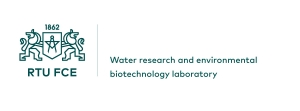This site uses cookies. By continuing to browse the site, you are agreeing to our use of cookies.
OKLearn moreWe may request cookies to be set on your device. We use cookies to let us know when you visit our websites, how you interact with us, to enrich your user experience, and to customize your relationship with our website.
Click on the different category headings to find out more. You can also change some of your preferences. Note that blocking some types of cookies may impact your experience on our websites and the services we are able to offer.
These cookies are strictly necessary to provide you with services available through our website and to use some of its features.
Because these cookies are strictly necessary to deliver the website, you cannot refuse them without impacting how our site functions. You can block or delete them by changing your browser settings and force blocking all cookies on this website.
These cookies collect information that is used either in aggregate form to help us understand how our website is being used or how effective our marketing campaigns are, or to help us customize our website and application for you in order to enhance your experience.
If you do not want that we track your visist to our site you can disable tracking in your browser here:
We also use different external services like Google Webfonts, Google Maps and external Video providers. Since these providers may collect personal data like your IP address we allow you to block them here. Please be aware that this might heavily reduce the functionality and appearance of our site. Changes will take effect once you reload the page.
Google Webfont Settings:
Google Map Settings:
Vimeo and Youtube video embeds:
You can read about our cookies and privacy settings in detail on our Privacy Policy Page.
News2
In our laboratory were journalists from Latvian Television
On April 14 2015, in our laboratory were journalists from Latvian Television.
They asked Brigita Dalecka, our scientific assistant in Water Research Laboratory, about our technologies how to make biobutanol from hogweed.
Watch video from 23:15 min.
Using biomass grass for getting biofuell
In Ludza on April 13 2015, were informative seminars for farmers on the Rural Development Programme for news and events. One of speakers were Water Research laboratory scientist Linda Mezule. She speaks about using biomass grass for getting biofuell.
More about seminar
Vides risinājumu institūts
Riga Technical University scientists in cooperation with Ltd. «Vides risinājumu institūts» and colleagues from Durmishidze Institute of Biochemistry and Biotechnology of Georgian produced biofuels from hogweed, straw and algae.
Read more
At the end of Year 2014 a newspaper «Dienas Bizness»
At the end of the Year 2014 a newspaper «Dienas Bizness» posted the article about our researchers and laboratory. In this article, Linda Mezule said «I have to disappoint You. Here, underneath it all, doesn’t hide sexy story about any accidental romantic discoveries. We just developed a technology that allows identified existing bacteria in drinking water and one of the main conditions was speed of the test. Our developed test finished this task in two hours».
Read more in db.lv
Our laboratories visited by representatives from the Boeing Company
May 9th our laboratories visited by representatives from the Boeing Company: Ms. Kimberly Pearson (Regional Director, BCA International Business Development), Dr. Joanna Szydlo-Moore (BCA Director Research, Technology and Engineering), Mr. Mark Norris (BCA Sales) and Mr. Roberto Molina (BR&T-E Madrid). They were accompanied by Gundega Ose and Agnese Buša from Investment and Development Agency of Latvia (LIAA) and Laila Elina and Gatis Bažbauers from RTU.
Būvinženieris
Riga Technical University and magazine «Būvinženieris» has made the joint project.
More about the project.
LAP LAMBERT Academic Publishing has released a new book
LAP LAMBERT Academic Publishing has released a new book «NOM Removal from Water and its Influence on the Drinking Water Quality: Natural organic matter removal from water and its influence on the water quality in distribution network» by Kristina Tihomirova (Publishing date: October 26, 2011). The book is available on http://www.amazon.com and http://www.amazon.co.de.
Improve drinking water quality in Jelgava
The experts from WRL was invited to assist in to improve drinking water quality in Jelgava which is the fourth major cities in Latvia.
According to agreement between SIA Jelgavas ūdens (http://ju.lv/) and WRL, our experts should use standardized Resuspension Pothential method (RPM) to prioritize flushing programe to reduce the risk of drinking water discoloration in networks. Information on the WRL staff activities in Jelgava can be found in the local newspaper.
http://www.jelgavasvestnesis.lv/page/9?news_id=13980
Open mind
Congratulations to Swedbank’s scholarship competition winners OPEN MIND. The solemn ceremony was named in eight exploratory work of authors that have been granted scholarships for high OPEN MIND 500 lats.
One of the winners is our team member Alīna Neščerecka with work «Drinking water quality changes in the water distribution system» (Riga Technical University)
Congratulations!
Scientists of Riga Technical University in Latvia
Scientists of Riga Technical University in Latvia are researching what actions should be taken to avoid and prevent extensive water pollution in biological terrorist attacks to water supply systems.
Read more in lsm.lv